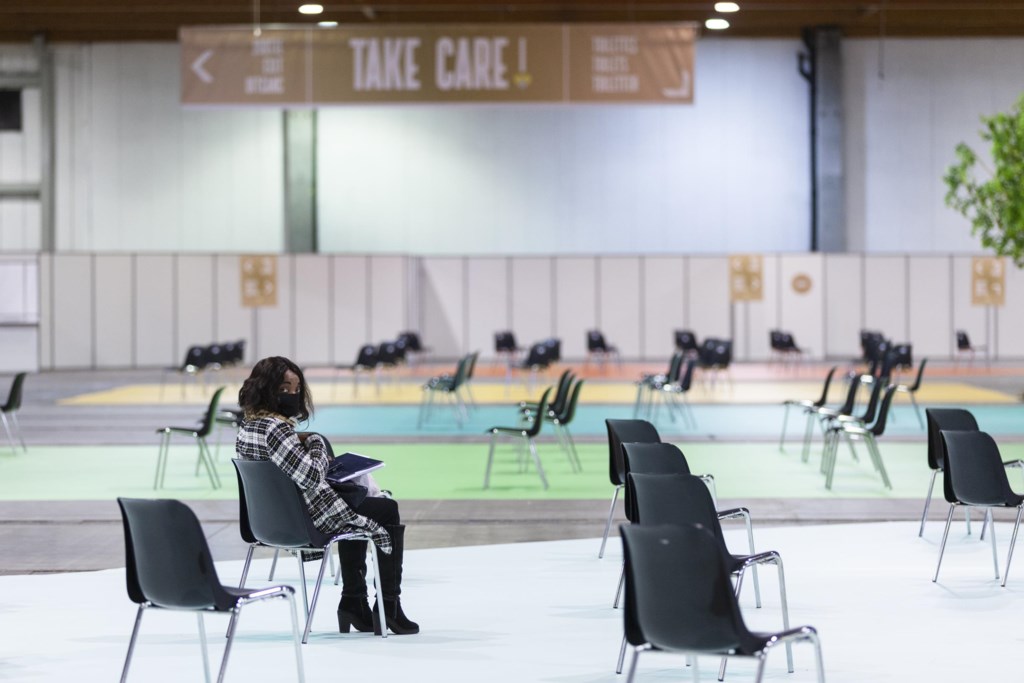Different measures for Belgium's different regions are currently not on the table, even as Flanders made it clear it does not want to be stuck waiting for Brussels in terms of vaccination before relaxing rules.
As over 90% of all adults in Flanders have already received their first coronavirus vaccine, compared to 62% in Brussels, Flemish Minister-President Jan Jambon said that it could be time to differentiate, saying that "if we still cannot go back to normal with 90% of people vaccinated, when can we?”
"The fact that Flanders is doing well in terms of vaccination is good news," Brussels Minister-President Rudi Vervoort's spokesperson Zeynep Balci told Bruzz. "But we are only safe when everyone is safe."
"Brussels is a metropolis with specific challenges similar to those in other cosmopolitan cities," she said, pointing out that Brussels' services are tirelessly continuing their efforts to convince as many people as possible to get vaccinated.
In two months' time, the vaccination rate among over-65s went from 60% to 80%, and also rose to over 75% for Brussels residents with underlying conditions. "The same applies to the 45-64 year olds, where we are well above the 70% for first doses."
The main challenge that Brussels is facing is getting the younger people vaccinated, as they make up a large part of the city's population, according to Balci and the health authorities.
"We are preparing various actions there, such as a vaccination bus on university campuses," she added, referring to the bus that is also stationed at events and certain neighbourhoods with a hard-to-reach population.
Related News
- People who missed second vaccine can now book catch-up appointment
- Flanders won't wait for Brussels to relax rules
- Vaccination figures in Brussels 'likely' slightly underestimated
"Additionally, over a third of Brussels residents have dual nationality, and we estimate that about 5% have been vaccinated abroad," Balci added, echoing statements by the head of the Brussels health inspectorate, Inge Neven, who gave a similar estimate.
In any case, "different rules for the different regions are not on the table now," according to Brussels Health Minister Alain Maron. "I understand that Flanders wants to reap the benefits of its efforts, but we must do everything we can to limit infections everywhere in the country."
However, Maron also stressed that the Brussels government is not against differentiated rules on principle, pointing to the fact that Brussels has been stricter than Flanders for a long time, with an earlier curfew and closing time for bars, as well as the general face mask obligation.
"We are not eager to go in that direction again, but that is a discussion we will have within the government, and then within the Consultative Committee," he added.
"The majority of Brussels residents have their roots abroad, so there is a lot of travelling going on. We are keeping a close eye on the infections and hospitalisations, and for the time being, they seem to be under control," Maron said.
"Of course, we want to prevent the situation from going off the rails, and if it seems to go that way in a few weeks' time, we will certainly intervene," he added.
Additionally, Maron stated that he also has questions about the criteria that would be used to decide on stricter or more relaxed measures in different regions.
"Brussels has a lot of large hospitals, where a lot of Flemish and Walloon people are too," he said. "So you cannot just base it on the hospitalisation rate, for example."
When basing relaxations on the number of infections, however, the authorities have to be careful as well, Maron stressed. "For weeks now, far more people per 100,000 inhabitants have been tested in Brussels than in the other Belgian provinces. That may also have its consequences on the results."

